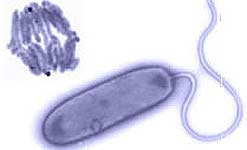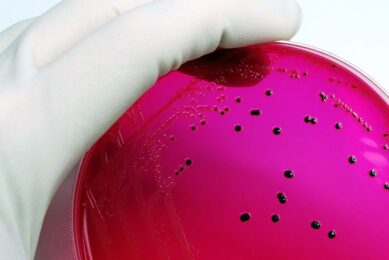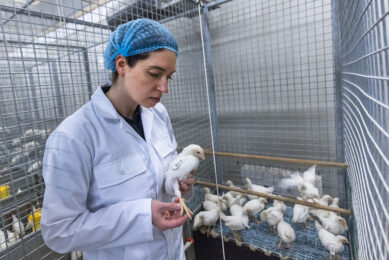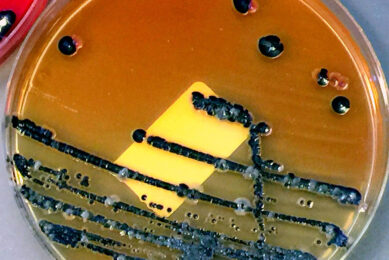‘Living antibiotic’ reduces salmonella in chicken gut

Researchers have found that a predatory bacterium significantly reduces the number of salmonella bacteria in the guts of live chickens, indicating the bacterium has the potential to be used as a “living antibiotic.”
Researchers at the University of Nottingham say the bacterium bdellovibrio reduced the amount of salmonella bacteria in the chickens’ stomachs by 90%, and didn’t affect the birds’ health or growth.
Salmonella grows in the guts of poultry and other animals and can cause food poisoning in humans.
Test tubes
Bdellovibrio had previously been shown to kill other bacterial cells in test tubes by breaking into cells and destroying them from the inside.
Bdellovibrio had previously been shown to kill other bacterial cells in test tubes by breaking into cells and destroying them from the inside.
The new study, published in the journal Applied and Environmental Microbiology, says the bdellovibrio is also lethal to harmful bacteria within a bird, without harming them or changing their behaviour, so there’s potential for the bacterium to be used to combat other disease-causing bacteria.
“Bdellovibrio has the potential to be used as a living antibiotic against some major human and animal pathogens, such as E. coli and other so-called Gram-negative bacteria,” researcher Laura Hobley said.
“We think that bdellovibrio could be particularly useful as a topical treatment for wounds or foot rots, but we wanted to know what might happen if it is ingested – either deliberately, as a treatment, or by accident.”
Join 31,000+ subscribers
Subscribe to our newsletter to stay updated about all the need-to-know content in the poultry sector, three times a week. Beheer
Beheer








 WP Admin
WP Admin  Bewerk bericht
Bewerk bericht